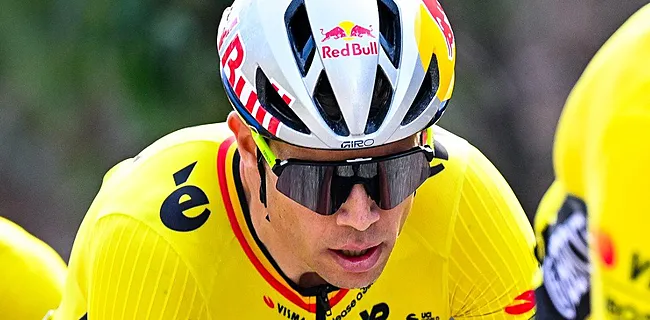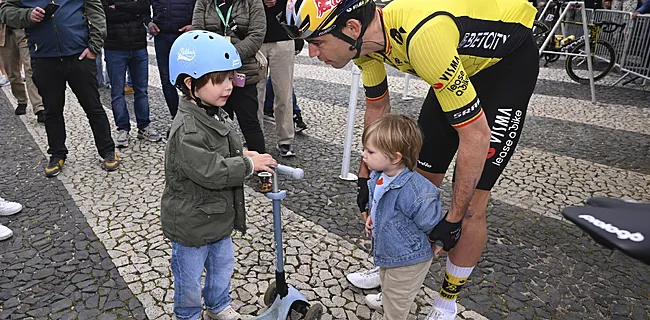
After the third stage of the Tour of the Algarve, held in Vila Real de Santo António, Wout van Aert had to face not only the usual post-race media frenzy but also a very special and poignant moment with his young son, Georges. The young boy, full of curiosity, asked his father a direct and critical question that brought both humor and warmth to the moment.
“Why were you eighth today?” Georges asked, clearly puzzled by his father’s performance. The question was as innocent as it was pointed, showcasing the young boy’s straightforwardness and keen interest in his father’s career. Wout, never one to shy away from humor, responded with a laugh: “Because there were seven better than me.” Despite the lighthearted response, the situation only grew more amusing when Georges, ever the little critic, pressed further, asking, “Were you trying to pass them?”
The exchange, though playful, perfectly encapsulated the candid dynamic between the two. Georges, even at such a young age, doesn’t hold back in evaluating his father’s performance, providing a glimpse into how deeply he values Wout’s career and accomplishments. His curiosity, coupled with his critical nature, highlights his growing awareness of the intricacies of professional cycling.
As for Wout, his day in the third stage didn’t go exactly as planned. Although the final results showed him finishing seventh due to a disqualification for Alberto Dainese, Van Aert had initially crossed the line in eighth. The finish didn’t reflect the high expectations that both Wout and his supporters had set for him.
In his post-race comments, Van Aert acknowledged the difficulty of the stage. “It was a fairly easy approach to the last five kilometers,” he explained. However, he noted that the wind was against the peloton, which rendered any attempts to break away from the pack largely ineffective. As the race neared its conclusion, the pace increased sharply in the last three kilometers, with Van Aert finding himself in a good position at the 800-meter mark. However, just before the final corner, he lost crucial positions, making it difficult to launch a proper sprint toward the finish line.
Despite the setback, the moment with his son Georges underscored a more personal side to the race. Georges’ thoughtful questions about his father’s performance reflect a sincere interest in understanding the challenges his father faces on the road. It’s clear that Wout’s success isn’t just a source of pride for his son but also a catalyst for introspection and inquiry. This simple yet touching interaction between father and son provides a heartwarming glimpse into the behind-the-scenes of a professional athlete’s life, where even the smallest moments of family connection take on special meaning.

Leave a Reply